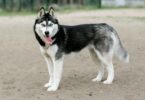Bringing a Basset Hound puppy into your home is a heartwarming experience that brings joy and companionship. These adorable dogs, with their droopy ears and gentle eyes, quickly capture hearts. However, ensuring they grow into healthy, happy adult dogs requires careful attention to their specific needs.
This guide offers a comprehensive look at the health, care, and nutrition of Basset Hound puppies. Understanding their unique characteristics is crucial for providing the best possible life for your new pet. Reputable breeders, like those at Affectionate Basset Hounds, create nurturing environments that promote healthy growth and development.
Within these pages, we explore essential topics such as grooming, exercise, diet, and training. Each aspect is vital for your Basset Hound’s wellbeing. Expert tips and testimonials from experienced breeders and owners provide valuable insights, ensuring you’re well-equipped to care for your new companion.
Whether you’re a first-time dog owner or a seasoned pet parent, this guide empowers you with knowledge to make informed decisions. By focusing on science-backed advice, we help you create a loving and healthy home for your Basset Hound puppy.
Introduction to basset hound puppies
Welcome to the charming world of Basset Hound puppies! These endearing dogs, known for their gentle nature and calm demeanor, make wonderful companions for families and individuals alike. With their short stature and long ears, Basset Hound puppies captivate hearts with their unique appearance and affectionate personalities.
Basset Hounds are known for their friendly temperament, making them excellent family pets. They are generally good with children and other animals, creating a harmonious home environment. Their calm and patient nature makes them a great choice for both first-time dog owners and experienced pet parents.
Raising a Basset Hound puppy requires attention to their specific needs. Early health practices, such as regular vaccinations and deworming, are crucial for their development. Selecting a responsible breeder ensures that your puppy is well-cared-for from the start. Understanding their needs, including proper feeding and exercise, helps create a thriving environment for your new pet.
The personality of a Basset Hound puppy can greatly enhance your home life. Their eager-to-please nature makes training manageable, and their calm presence can bring comfort and joy to your daily routine. By providing the right care and attention, you can help your Basset Hound puppy grow into a happy and healthy adult dog.
History and Origins of the Basset Hound
The Basset Hound’s story begins in France, where the name “Basset” translates to “low.” This refers to their distinctive short stature, bred for efficient ground-level hunting.
Historically, Basset Hounds descend from St. Hubert Hounds and Norman Staghounds. Their lineage is rich, tracing back to Bloodhounds known for tracking abilities. Over time, they evolved into a smaller, more specialized hound.
Post-French Revolution, Basset Hounds became popular for foot hunting. Their calm nature and persistence made them ideal for following scents without excessive speed, suitable for hunters on foot.
Centuries of selective breeding shaped their temperament. Basset Hounds are known for loyalty and gentleness, traits that make them excellent family pets. Their historical development as working dogs laid the foundation for their modern, affectionate nature.
Unique Temperament and Personality Traits
Basset Hounds are known for their calm and gentle nature, making them a wonderful addition to families. Their peaceful demeanor and short stature create a sense of comfort and companionship in any home.
These dogs are naturally affectionate, forming strong bonds with family members and children. Their loyal and loving personality traits make them ideal companions. However, Basset Hounds can sometimes be stubborn, requiring patient and consistent training to address this behavior.
Originating from a lineage of skilled hunters, Basset Hounds retain strong instincts for tracking and exploring. Their social nature thrives when properly socialized, making them excellent family pets. With the right care and attention, a Basset Hound can grow into a well-adjusted and loving companion.
Understanding Health and Wellness for Your Puppy
Ensuring your Basset Hound puppy grows into a healthy adult requires careful attention to their unique health needs. Regular veterinary check-ups and preventative care are essential from an early age to prevent potential issues.
Vaccinations and deworming are critical to protect your puppy from harmful diseases and parasites. Regular vet visits help monitor their growth and address any concerns early on, ensuring your puppy stays healthy and thrives.
Basset Hound puppies can face specific health challenges, such as posture issues due to their short stature and potential weight management problems. Keeping them at a healthy weight through balanced nutrition and exercise is vital to prevent obesity and related health complications.
A safe and comfortable environment also plays a significant role in your puppy’s wellbeing. Proper hydration and a nutrient-rich diet are foundational for their overall health, supporting their development and energy levels.
Expert Care Tips for New Puppy Owners
Caring for a new Basset Hound puppy requires attention to detail and a consistent routine. Establishing a daily schedule for feeding, playtime, and sleep helps your puppy feel secure and develops good habits from the start.
Start with short, gentle walks and gradually increase exercise as your puppy grows. Socialization is key—introduce your puppy to new environments and people slowly to build confidence. Always use a proper leash and ensure play areas are safe to prevent accidents.
Monitoring your puppy’s activities is crucial, especially in the early weeks. Consider using cameras to keep an eye on them when you’re not in the room. Regular checks can help catch any potential issues early, ensuring your puppy stays healthy and happy.
For more tips on caring for your new companion, discover more about creating a nurturing environment for your Basset Hound puppy.
Nutritional Needs and Proper Feeding Practices
Nourishing your Basset Hound puppy with a well-balanced diet is essential for their growth and development. A high-quality puppy food, rich in essential nutrients, forms the cornerstone of their meals.
Feeding schedules should be structured to prevent overeating, with portion sizes tailored to maintain a healthy weight and support strong bone development. Transitioning from maternal milk to solid food begins around three to four weeks, introducing puppy food mixed with milk or yogurt to ease digestion.
Hydration is crucial, so ensure your puppy always has access to fresh water. Consulting a vet for dietary supplements can further enhance their nutrient intake, supporting overall health and energy levels.
Grooming Essentials for a Healthy Hound
Grooming is more than just keeping your dog clean; it’s a vital part of maintaining their overall health and wellbeing. Regular grooming sessions can help you bond with your pet and catch potential health issues early.
Brushing and Coat Care
Brushing is essential for managing shedding and keeping your dog’s coat healthy. Use a soft-bristle brush or a rubber grooming tool to gently remove loose hair. This helps reduce shedding and prevents hair from getting all over your home.
A weekly brushing routine is ideal. It not only keeps their coat in great condition but also gives you a chance to inspect their skin for any signs of irritation or dryness.
Ear, Nail, and Dental Maintenance
Those adorable droopy ears need regular cleaning to prevent infections. Gently wipe the outer part of the ears with a damp cloth. Avoid inserting anything deep into the ear canal to prevent damage.
Trimming nails every few weeks is crucial. If you can hear their nails clicking on the floor, they’re too long. Use a dog-specific nail trimmer and go slowly to avoid cutting the quick.
Dental care is just as important. Use a toothbrush and toothpaste made for dogs to keep their teeth clean. Aim for a few times a week to help prevent tartar buildup and bad breath.
Regular grooming isn’t just about looks; it’s a way to keep your dog healthy and happy. By staying on top of these simple tasks, you can help prevent bigger health issues down the line and enjoy a cleaner, more comfortable home.
Exercise and Activity Guidelines
Exercise plays a key role in maintaining the health and happiness of your Basset Hound puppy. Daily walks and playtime are essential to keep them active and prevent potential health issues.
While Basset Hounds are not overly active, they still need regular exercise to stay healthy. This helps prevent boredom and behavioral problems that can arise from lack of stimulation.
- Daily walks are crucial for maintaining a healthy weight and overall fitness.
- Use a leash in open environments, as their strong sense of smell might lead them to wander.
- Provide safe, fenced areas for off-leash play to ensure their safety.
- Gradually increase exercise as your puppy grows to avoid straining their short legs.
By following these guidelines, you can help your Basset Hound puppy lead a happy and healthy life.
Creating a Pet-Friendly Home Environment
Designing a home that’s safe and welcoming for your Basset Hound puppy is essential for their happiness and development. Start by ensuring your space is puppy-proofed, removing any hazardous items and securing loose wires or toxic substances.
Establishing designated areas for play and rest can help reduce the risk of injury. Consider setting up a cozy corner with a soft bed where your puppy can relax. For playtime, choose durable toys that are safe and suitable for their age and size.
A securely fenced yard is a must for any curious puppy. This allows them to explore safely without the risk of wandering off. Additionally, incorporate puppy-friendly furniture and accessories that encourage both fun and relaxation. By creating a safe and comfortable environment, you’re helping your Basset Hound puppy thrive in their new home.
Socialization and Training Techniques
Socializing your Basset Hound puppy is crucial for their emotional and social development. Positive experiences early on help shape a confident and well-adjusted adult dog.
Early Socialization Tips
Introduce your puppy to various environments, people, and animals gradually. Start with short visits to parks or friend’s homes to expose them to new sights and sounds. Positive reinforcement with treats and praise encourages good behavior.
Basic Obedience Training
Begin with simple commands like “sit” and “stay.” Use positive reinforcement techniques, such as offering treats when they perform the desired action. Consistency is key to establishing clear behavior patterns.
Balancing training with playtime keeps sessions engaging. Keep lessons short to maintain your puppy’s attention. Over time, they’ll learn to respond reliably to commands.
Preventative Healthcare and Routine Vet Care
Preventative healthcare is the cornerstone of ensuring your Basset Hound puppy leads a long, healthy life. Regular veterinary visits are vital for early detection of potential issues and maintaining overall wellbeing.
A well-structured schedule includes vaccinations, deworming treatments, and check-ups. Puppies typically receive their first vaccinations at 6-8 weeks, with follow-ups every 3-4 weeks until they’re 16 weeks old. Deworming is usually done at 2 weeks and continued every 2 weeks until 12 weeks. Annual check-ups help monitor growth and catch any emerging health concerns early.
Monitoring your puppy’s physical development is crucial. Look for signs of healthy growth, proper weight, and any physical abnormalities. Addressing minor issues promptly prevents them from becoming serious problems later. Preventative care, such as heartworm medication and flea control, is essential for protecting your puppy from parasites and diseases.
Veterinarians and breeders recommend practical tips like keeping a health journal to track vaccinations and vet visits. This helps ensure your Basset Hound puppy receives the care they need to thrive. By prioritizing preventative healthcare, you’re giving your puppy the best chance at a happy, healthy life.
Reputable Breeding and Adoption Guidelines
Choosing the right source for your new Basset Hound puppy is a critical decision. Whether you decide to buy from a breeder or adopt from a shelter, ensuring the wellbeing of your future pet is paramount.
Finding Trusted Breeders
Reputable breeders prioritize the health and welfare of their dogs. Look for breeders who are USDA licensed and follow ethical breeding practices. Visit their kennels to see the conditions firsthand and ask for health records of the parents.
- Check for USDA licensing and ethical practices.
- Visit kennels to assess the environment and meet the dogs.
- Request health records and genetic testing reports.
Adoption Considerations
Adopting a dog can be incredibly rewarding. Shelters have many wonderful animals waiting for a loving home. However, adoption may require patience due to high demand.
- Research shelters and rescue organizations in your area.
- Consider factors like energy levels and family dynamics.
- Prepare for the adoption process and potential wait times.
For more information on making an informed decision, visit Dog Tips to explore resources on dog care and adoption.
Navigating the Market: Buying vs. Adopting
Choosing the right way to bring a Basset Hound into your life involves a key decision: buying from a breeder or adopting from a shelter. Both options have their advantages and challenges, and understanding them can help you make the best choice for your family.
Buying from a reputable breeder offers the benefit of knowing your Basset Hound’s lineage and temperament. This can be especially important if you’re looking for specific traits or want to ensure the dog is well-socialized from an early age. However, this option often comes with a higher upfront cost and may require more research to find an ethical breeder who prioritizes animal welfare.
On the other hand, adopting from a shelter can be a rewarding experience, offering a loving home to a dog in need. Shelters often have a wide range of ages and mixes, which might appeal to those looking for a pet with a unique background. Adoption fees are generally lower, and many shelters include initial vaccinations and spaying/neutering in the cost. However, the history of the dog may be less clear, and there could be a wait for the perfect match.
When deciding, consider your lifestyle, budget, and what you’re comfortable with. Financially, adoption is usually more affordable upfront, while buying from a breeder involves higher initial costs. Ethically, adoption supports reducing pet overpopulation, while buying from a reputable breeder ensures you’re not supporting irresponsible breeding practices.
Success stories abound in both avenues. Many families have found their perfect companion through breeders, appreciating the predictability of temperament and health. Others have discovered loving pets through shelters, cherishing the opportunity to give a second chance to a deserving dog.
Ultimately, the decision should align with your personal circumstances and values. Whether you choose to buy or adopt, thorough research and understanding your needs will guide you to the right choice, ensuring a fulfilling experience for both you and your new Basset Hound.
Maintaining a Balanced Lifestyle with a Basset Hound
Integrating a Basset Hound into your busy life can be seamless with the right strategies. Balancing work, exercise, and quality time with your pet is achievable with a structured daily routine.
Start by scheduling short, manageable sessions for walks and playtime. Even 15-20 minutes of activity can make a big difference. Incorporate training exercises into these sessions to keep your dog mentally stimulated and active.
Consistency is key. Maintain a regular feeding schedule and ensure vet visits are never missed. A well-planned daily routine benefits both you and your dog, promoting a sense of security and normalcy.
Be flexible and adapt your schedule as needed. Life can be unpredictable, but with a little creativity, you can ensure your Basset Hound remains happy and healthy. By prioritizing their needs, you’re fostering a loving and balanced home environment.
Testimonials and Success Stories
Nothing speaks louder than the heartfelt experiences of those who’ve welcomed a Basset Hound into their family. These touching stories highlight the joy and fulfillment that come with sharing your life with these gentle companions.
Customer Experience Highlights
Many families have shared their delightful journeys with their new pets. Here are a few inspiring accounts:
- A Heartwarming Addition: Sarah and her family found their perfect companion in Max, a Basset Hound puppy. They shared, “Max brought an immeasurable amount of joy and comfort to our home. His calm nature makes him a wonderful friend for our children.”
- Seamless Integration: Emily, a first-time dog owner, expressed her satisfaction with the support from Affectionate Basset Hounds. She mentioned, “The guidance we received helped us create a nurturing environment for our dog, Bella, who has become an integral part of our family.”
- Expert Care and Support: John, a seasoned pet owner, appreciated the comprehensive care tips provided. He noted, “The advice on feeding and exercise routines has been invaluable in keeping our Basset Hound, Duke, healthy and active.”
These testimonials underscore the profound impact of Basset Hounds on their owners’ lives, reinforcing the importance of proper care and the rewards of dog ownership.
Prospective owners can take comfort in knowing that with the right care, their Basset Hound will bring endless happiness and companionship into their lives.
Final Reflections on Basset Hound Puppies
Welcoming a Basset Hound into your family is a decision that brings immense joy and responsibility. As you conclude your journey through this guide, remember that each aspect of care—from health checks to nutrition and grooming—plays a vital role in your dog’s happiness and longevity.
Regular veterinary visits, a balanced diet, and consistent grooming habits are essential for maintaining your Basset Hound’s wellbeing. Ethical breeding practices ensure you’re bringing home a healthy, well-cared-for companion. Testimonials from experienced breeders and owners highlight the positive impact of responsible pet ownership.
By applying the practical tips and insights provided, you can create a nurturing environment for your Basset Hound. Informed decision-making, whether through adoption or purchasing from a reputable breeder, ensures a fulfilling experience for both you and your new companion.
The journey of raising a Basset Hound is incredibly rewarding, offering years of companionship and joy. Embrace the adventure with an open heart, knowing you’re contributing to a lifelong bond filled with love and happiness.
FAQ
What makes Basset Hounds a good choice for families?
Basset Hounds are known for their calm and affectionate nature, making them a great fit for families. They are generally good with children and adapt well to home environments, provided they receive proper care and attention.
How much exercise does a Basset Hound puppy need daily?
Basset Hound puppies require moderate exercise to stay healthy. Daily walks of about 20-30 minutes, along with playtime, are recommended. Overexertion should be avoided to prevent joint issues later in life.
What are the common health issues in Basset Hounds?
Basset Hounds can be prone to hip dysplasia, ear infections, and obesity. Regular veterinary check-ups and a balanced diet are essential to maintain their health and wellbeing.
How often should I groom my Basset Hound?
Basset Hounds have a short, smooth coat that requires weekly brushing. Their ears, nails, and teeth also need regular maintenance to prevent health issues. A grooming routine of 2-3 times a week is ideal.










Leave a Comment